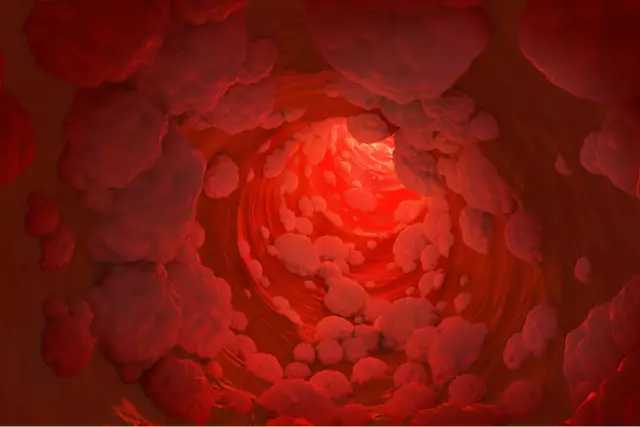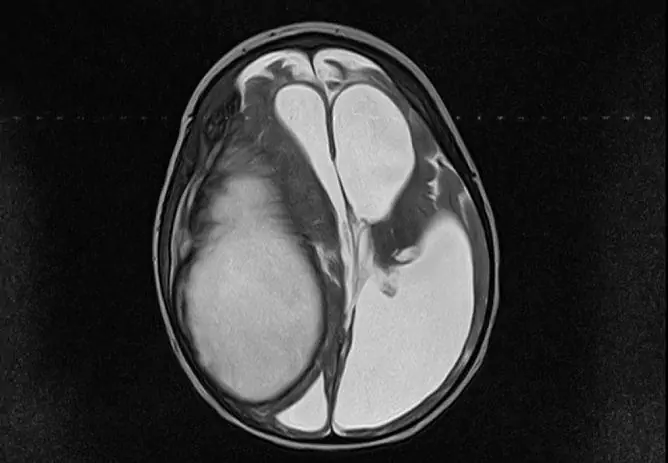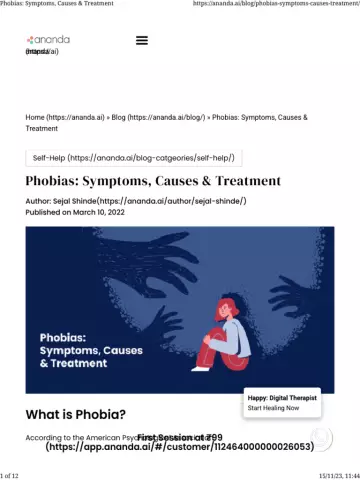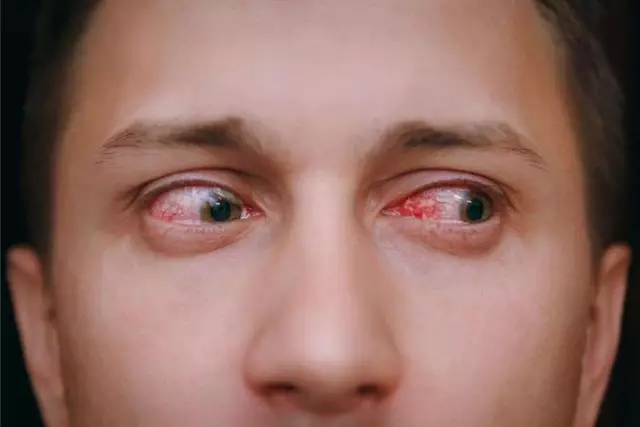- Author Rachel Wainwright wainwright@abchealthonline.com.
- Public 2023-12-15 07:39.
- Last modified 2025-11-02 20:14.
Hyperlipidemia

Hyperlipidemia is a violation of lipid metabolism with an increased content in the human blood. This disorder is a risk factor for the development of cardiovascular diseases and pancreatitis.
Causes and symptoms of hyperlipidemia
Hyperlipidemia can provoke the deposition of atherosclerotic plaques and the development of vascular atherosclerosis. An excess amount of lipids affects the active formation of cholesterol and calcium deposits. With a large excess of lipids, blood circulation deteriorates and the likelihood of developing coronary artery disease, heart attack, aortic aneurysm and cerebrovascular accidents increases.
Hyperlipidemia can be caused by abnormal blood pressure, obesity, diabetes mellitus, and old age. The development of the disease is facilitated by a sedentary lifestyle, diseases of the kidneys and thyroid gland, smoking and drinking alcohol.
Symptoms of hyperlipidemia are mild, and the disease is detected using a biochemical blood test. Hyperlipidemia can manifest itself as a hereditary disease, and the risk of its occurrence increases after 40 years.
Some medications cause an increase in lipid buildup in the body. These include: estrogens, hormonal and contraceptive drugs, diuretic drugs.
Types of hyperlipidemia
There are five main types of hyperlipidemia, which differ in the factors that cause the disease and the degree of its progression. The general classification of lipid disorders was formed by the scientist D. Fredrickson in 1965 and accepted as the official version by the World Health Organization.
The first type of hyperlipidemia is the most rare and develops with a deficiency of LPL protein, and also causes an increase in the content of chylomicron.
Type II hyperlipidemia is the most common form of this disease and is accompanied by high triglyceride levels.
Lipid disorder of a sporadic or hereditary type is caused by genetic mutations and a familial predisposition to the development of cardiovascular disease.
A special subtype of hyperlipidemia is impaired clearance, as well as increased levels of acetyl coenzyme and triglycerides.
The third type of hyperlipidemia is manifested in an increased amount of chylomicron and DID caused by disorders of LDL receptors.

The fourth and fifth types of the disease are the most rare and are accompanied by an increased concentration of triglycerides.
Hyperlipidemia treatment
Treatment of hyperlipidemia begins with establishing the type of disease and the level of lipids in the body. An important component of treatment is a low-calorie diet, which aims to reduce the amount of lipids and maintain their normal levels in the body.
Also, the attending physician prescribes special physical exercises to reduce cholesterol and triglycerides. Elimination of excess weight, regular exercise and elimination of bad habits will significantly reduce the amount of fat.
The course of treatment for hyperlipidemia includes the following medications:
- statins, which lower cholesterol in the blood and prevent its deposition in the liver;
- choleretic drugs;
- fibrates;
- vitamin B5.
In patients over 50 years of age, the treatment of hyperlipidemia should be comprehensive, with a combination of drug therapy, special diet, exercise and therapeutic cleansing procedures.
YouTube video related to the article:
The information is generalized and provided for informational purposes only. At the first sign of illness, see your doctor. Self-medication is hazardous to health!






